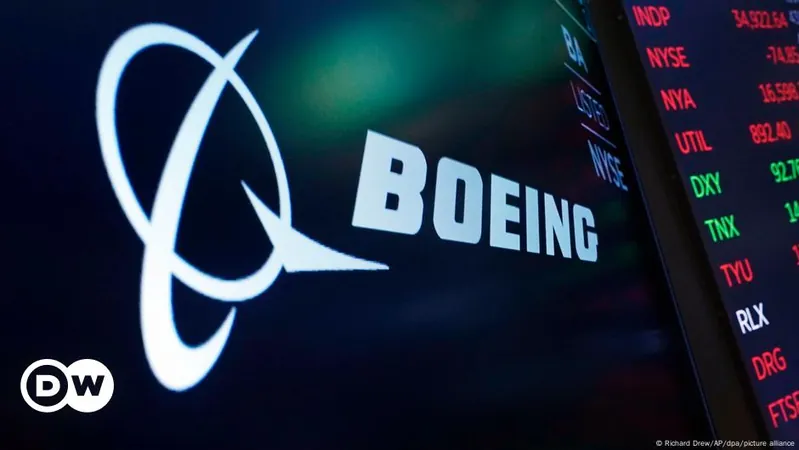
Boeing Announces Job Cuts and Major Delays in 777X Delivery Amid Financial Turmoil
2024-10-12
Author: Wai
In a shocking announcement, Boeing revealed plans to lay off approximately 17,000 employees, accounting for 10% of its global workforce. This decision comes in response to a projected significant loss for the third quarter, largely attributed to ongoing challenges stemming from a machinists' strike in the Seattle region.
The strike, which kicked off on September 13, has seen members of the International Association of Machinists and Aerospace Workers walk off the job after overwhelmingly rejecting a contract proposal. This strike has involved about 33,000 workers and has suspended production on critical aircraft models including the 737 MAX, 767, and 777.
Boeing's Chief Executive David Calhoun emphasized the necessity to "reset our workforce to align with our financial reality," indicating that the job cuts will impact various levels of staff, including executives and managers.
As Boeing prepares to report its third-quarter earnings on October 23, the company has adjusted its financial forecasts. It now anticipates revenue of $17.8 billion, a staggering loss per share of $9.97, and a negative operating cash flow of $1.3 billion. These numbers reveal the magnitude of the financial strain Boeing is experiencing.
Major Setback in 777X Delivery Timeline
In addition to the workforce reduction, Boeing announced a significant delay in the delivery of its much-anticipated 777X aircraft. The company now expects to deliver the first 777X to customers in 2026, a year later than originally planned. This setback is primarily due to development challenges and the repercussions of the strike.
The 777X has already faced its own set of regulatory hurdles, with certification issues further complicating its launch timeline. This protracted delay could have serious implications for Boeing, especially as competition in the aerospace sector intensifies.
The urgency to reach a resolution with striking workers cannot be understated. According to ratings agency S&P, the ongoing strike is costing Boeing approximately $1 billion each month. If unresolved, this situation poses a significant risk to Boeing's investment-grade credit rating, which is vital for its future financing and operational stability.
Prior to the strike, Boeing was already grappling with cash flow issues, stemming from a mid-air panel blowout incident earlier this year that raised alarms about safety protocols. The fallout led U.S. regulators to impose restrictions on production, compounding the company's financial difficulties.
As Boeing navigates these tumultuous waters, the industry's eyes remain fixed on how the company will manage the crisis and what it means for the future of air travel manufacturing.


 Brasil (PT)
Brasil (PT)
 Canada (EN)
Canada (EN)
 Chile (ES)
Chile (ES)
 España (ES)
España (ES)
 France (FR)
France (FR)
 Hong Kong (EN)
Hong Kong (EN)
 Italia (IT)
Italia (IT)
 日本 (JA)
日本 (JA)
 Magyarország (HU)
Magyarország (HU)
 Norge (NO)
Norge (NO)
 Polska (PL)
Polska (PL)
 Schweiz (DE)
Schweiz (DE)
 Singapore (EN)
Singapore (EN)
 Sverige (SV)
Sverige (SV)
 Suomi (FI)
Suomi (FI)
 Türkiye (TR)
Türkiye (TR)